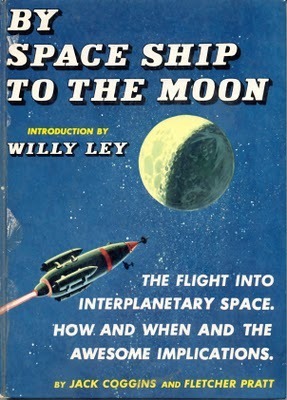What I Read On My Summer Vacation
.

Well, I had a pleasant week doing absolutely nothing. Now I have to drive to NYC tonight (along with the legendary Tom Purdom) for SFWA's Editors-Publishers Party -- better known as the Mill 'n' Swill. Then it's off to Pittsburgh, to Newport NY, and to Kingston NY. I've got a busy schedule this week.
But what, I hear you ask, did I read during those halcyon idle days Down The Shore? Well . . .
The Children's Book by A.S. Byatt. This is the novel we all want to write when we grow up. Either that or else Byatt's Possession .
Life in a Putty Knife Factory by H. Allen Smith. Light and inconsequential essays by a New York City newspaperman, back in the days when men word fedoras and Damon Runyan walked the streets.
Percy's Reliques . This is one of those crosses between scholarship and amateurism gone mad, a collection of ballads and poems, largely from Elizabethan times. The Dragon of Wantley alone would be worth the price of this eighteenth-century reissue (three bucks at the Baltimore Book Festival), but there are lots of gems to be found.
You Can't Win by Jack Black. The memoirs of a yegg and a hobo. Unapologetic and great fun to read -- though less fun to live, I imagine. One of the very few books that William S. Burroughs admitted was an influence on his own work.
Collected Poems of Hope Mirrlees. This is the long-awaited Carcanet Press collection, edited by Sandeep Parmar, of the poetry written by the author of the fantasy masterwork Lud-in-the-Mist . Mirrlees wrote one major modernist poem, Paris, a Poem , which was published by Virginia Woolf and which many suspect (but none can prove) was an influence on T. S. Eliot, a good friend of Mirrlees. All her other poems are conventional formal. As Parmar remarks in her extensive and illuminating introduction, "The poems . . . will not necessarily appeal to those who admire Paris ." But those who wish to understand an artist who created a single important work in two seemingly-unrelated forms must start here.
By Space Ship to the Moon by Jack Coggins and Fletcher Pratt. Actually, I just looked at Coggins' wonderful pictures. I bought this, in pristine collection, in an antique shop for six bucks. Not bad.
And for those who are curious . . .
Why do I admire The Dragon of Wantley so greatly? Consider only these lines:
Off I go to New York!
*

Well, I had a pleasant week doing absolutely nothing. Now I have to drive to NYC tonight (along with the legendary Tom Purdom) for SFWA's Editors-Publishers Party -- better known as the Mill 'n' Swill. Then it's off to Pittsburgh, to Newport NY, and to Kingston NY. I've got a busy schedule this week.
But what, I hear you ask, did I read during those halcyon idle days Down The Shore? Well . . .
The Children's Book by A.S. Byatt. This is the novel we all want to write when we grow up. Either that or else Byatt's Possession .
Life in a Putty Knife Factory by H. Allen Smith. Light and inconsequential essays by a New York City newspaperman, back in the days when men word fedoras and Damon Runyan walked the streets.
Percy's Reliques . This is one of those crosses between scholarship and amateurism gone mad, a collection of ballads and poems, largely from Elizabethan times. The Dragon of Wantley alone would be worth the price of this eighteenth-century reissue (three bucks at the Baltimore Book Festival), but there are lots of gems to be found.
You Can't Win by Jack Black. The memoirs of a yegg and a hobo. Unapologetic and great fun to read -- though less fun to live, I imagine. One of the very few books that William S. Burroughs admitted was an influence on his own work.
Collected Poems of Hope Mirrlees. This is the long-awaited Carcanet Press collection, edited by Sandeep Parmar, of the poetry written by the author of the fantasy masterwork Lud-in-the-Mist . Mirrlees wrote one major modernist poem, Paris, a Poem , which was published by Virginia Woolf and which many suspect (but none can prove) was an influence on T. S. Eliot, a good friend of Mirrlees. All her other poems are conventional formal. As Parmar remarks in her extensive and illuminating introduction, "The poems . . . will not necessarily appeal to those who admire Paris ." But those who wish to understand an artist who created a single important work in two seemingly-unrelated forms must start here.
By Space Ship to the Moon by Jack Coggins and Fletcher Pratt. Actually, I just looked at Coggins' wonderful pictures. I bought this, in pristine collection, in an antique shop for six bucks. Not bad.
And for those who are curious . . .
Why do I admire The Dragon of Wantley so greatly? Consider only these lines:
Oh, quoth the dragon, with a deep sigh,
And turn'd six times together,
Sobbing and tearing, cursing and wearing
Out of his throat of leather;
More of More-hall! O thou rascal!
Would I had seen thee never;
With the thing at thy foot, thou hast prick'd my arse
And I'm quite undone for ever.
Off I go to New York!
*
Published on October 03, 2011 09:00
No comments have been added yet.
Michael Swanwick's Blog
- Michael Swanwick's profile
- 546 followers
Michael Swanwick isn't a Goodreads Author
(yet),
but they
do have a blog,
so here are some recent posts imported from
their feed.



